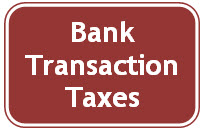
Do you remember all the doom and gloom merchants form the City (and more especially, the political right) who predicted that if the volume of trading in he City was reduced by a financial transaction tax then the world as we know it would fall apart? All that was being said at about the turn of the year.
Now I note this in today’s FT and I quote at length in the public interest:
A slump in UK share trading, where volumes are on track to reach an eight-year low, is set to hit government coffers by more than £1bn ($1.6bn) this year.
According to a study to be published on Monday by Equiniti, the share registrars, trading volumes in 2010 have fallen two-fifths from their pre-crisis peak as market turmoil scared off investors.
The drop will reduce the government’s tax take from the City. It should collect this year about £3bn in the stamp duty reserve tax paid on each share transaction, down from the record £4.2bn it received before the crisis.
The trading slump is also likely to affect trading profits at some of the City’s biggest banks.
Equiniti estimated that this year, adjusting for changes in market valuations, shares worth just 1.46 times the value of the UK market will change hands. That compares with trading worth twice the market value in 2007, or 2.5 times the value of the entire UK economy.
So volume and value have fallen, dramatically.
And has liquidity collapsed as some predicted? No, it hasn’t.
Has the supply of capital to UK large business failed? No, it hasn’t.
Has the world stopped revolving as it seemed some would suggest. No, definitely not.
Because the truth is that this volume of share dealing is simply not needed to create effective markets.
The truth is that effective markets might actually benefit from considerably less dealing. Keynes suggested two trading windows of ten minutes a day might be sufficient. There’s a lot of sense in that. Calm reflection is what is needed for effective markets. We don’t have time for that. A little less liquidity would help no end. And a financial transaction tax might just help create it.
Thanks for reading this post.
You can share this post on social media of your choice by clicking these icons:
You can subscribe to this blog's daily email here.
And if you would like to support this blog you can, here:



Richard, I fear you are over-selling the FTT. The UK housing market isn’t exactly famed for calm reflection, yet we’ve have a land transaction tax for some time (and at a much higher level than is ever suggested for an FTT).
What bothers me about this story is the default assumption by journalists that low volumes is somehow a bad thing. Imagine if data came out saying that smoking was at an all time low, and the default assumption by journalists and editors was to run a story along the lines: “tax crisis as tobacco duty plummets!”. There would quite rightly be an outcry.